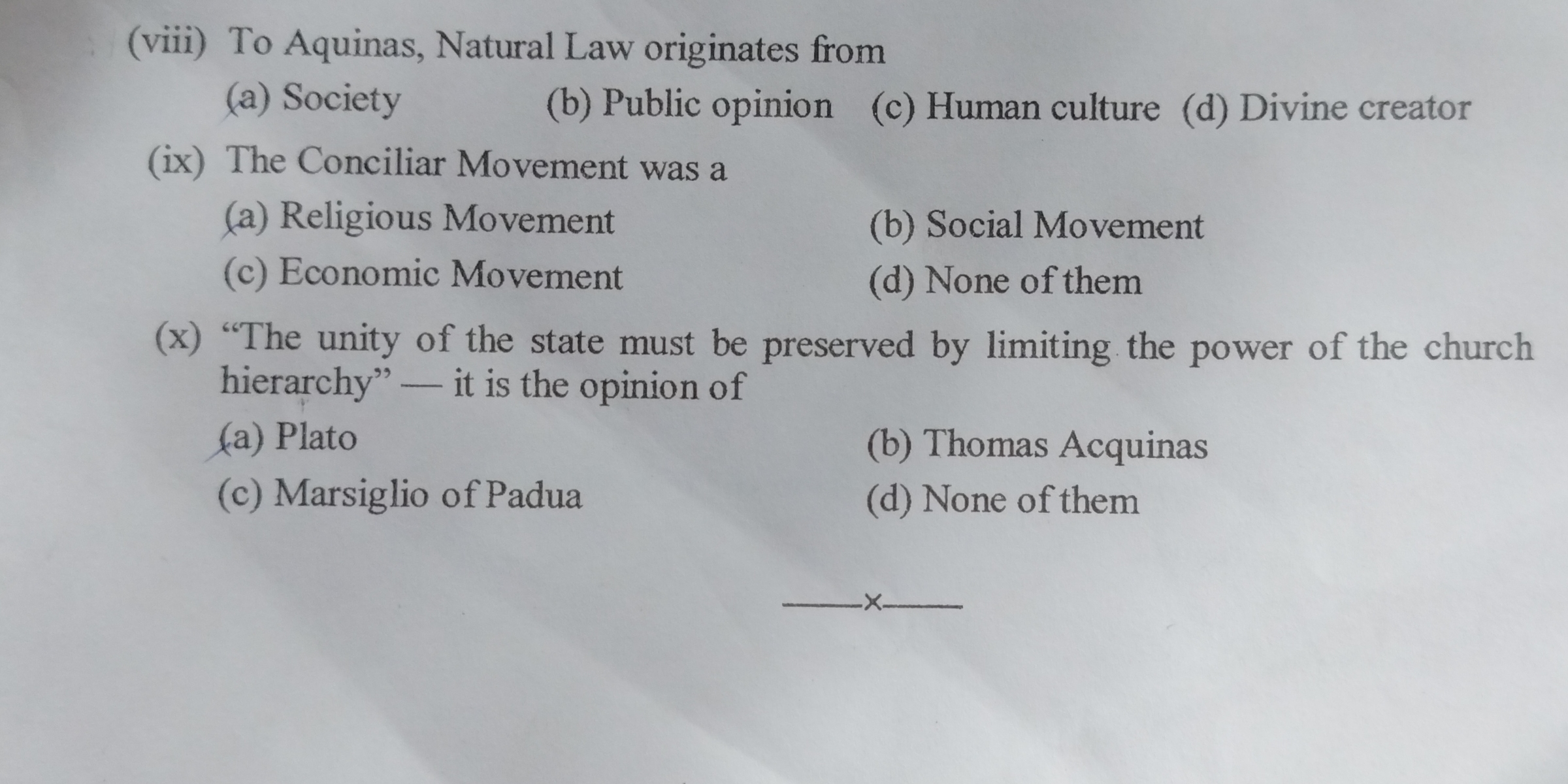To Aquinas, Natural Law originates from: (a) Society (b) Public opinion (c) Human culture (d) Divine creator. The Conciliar Movement was a: (a) Religious Movement (b) Social Moveme... To Aquinas, Natural Law originates from: (a) Society (b) Public opinion (c) Human culture (d) Divine creator. The Conciliar Movement was a: (a) Religious Movement (b) Social Movement (c) Economic Movement (d) None of them. "The unity of the state must be preserved by limiting the power of the church hierarchy" — it is the opinion of: (a) Plato (b) Thomas Aquinas (c) Marsiglio of Padua (d) None of them.

Understand the Problem
The question presents multiple-choice items related to the origins of Natural Law according to Aquinas, the nature of the Conciliar Movement, and the opinion about the unification of state and church hierarchy. It requires selecting the correct answer for each statement.
Answer
Divine creator; Religious Movement; Marsiglio of Padua.
To Aquinas, Natural Law originates from a Divine creator. The Conciliar Movement was a Religious Movement. The opinion on the unity of the state and limiting the church's power is from Marsiglio of Padua.
Answer for screen readers
To Aquinas, Natural Law originates from a Divine creator. The Conciliar Movement was a Religious Movement. The opinion on the unity of the state and limiting the church's power is from Marsiglio of Padua.
More Information
Thomas Aquinas believed that Natural Law is rooted in the eternal law established by a Divine creator. The Conciliar Movement aimed to address the authority within the Church, making it a Religious Movement. Marsiglio of Padua advocated for the separation of church and state.
Tips
A common mistake is confusing Aquinas's view on Natural Law origin as being from human society rather than divine creation.
AI-generated content may contain errors. Please verify critical information